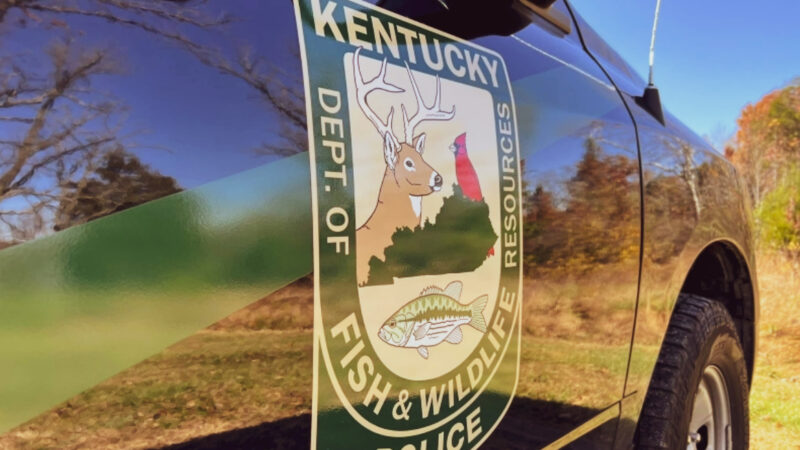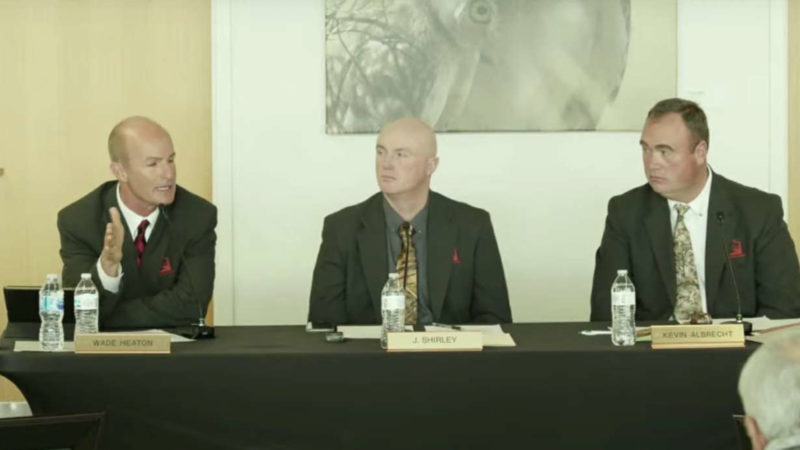Check any social media post authored by your state’s wildlife agency regarding deer hunting and you will likely see hundreds of comments from hunters barking about deer numbers, wolves, crossbows, baiting—you name it. Whether it’s right or wrong, the blame is directed at your state’s Department of Natural Resources, or the wildlife agency overseeing your state’s wildlife regulations and seasons.
What a lot of hunters and non-hunters don’t realize is that state DNR’s and wildlife agencies aren’t always the authority that can change deer hunting laws, but merely regulations within the framework of laws already established by politicians.
The process of how laws and subsequent regulations are determined depends on your state and the contributions from different organizations and influences. Let’s look at how some states go about determining hunting laws and regulations.

How Are Hunting Laws Changed?
In the grand scheme of things, your state’s wildlife agency is responsible for conserving and enhancing natural resources through a variety of avenues and processes. They’re responsible for the overall outdoors experience when recreating in your state. On the hunting side, your state agency also collaborates with citizen groups and boards to determine harvest quota numbers and holds meetings with other stakeholders about proposed rule changes.
There is a lot of confusion about who can change deer hunting laws we dislike, and many who quarrel about the laws are barking up the wrong tree simply because they are not informed about who makes the laws. To their credit, it can be confusing.
For example, Wisconsin implemented the Earn-A-Buck system for many years to reduce deer herd numbers. Although it was unpopular, it worked. Because of its unpopularity, then-Wisconsin Governor Scott Walker signed it out of law in 2011 with the stroke of a pen. The Wisconsin DNR, nor any other advisory board was responsible for this law being signed out of law.
Due to EAB being signed out of law, I argue that Wisconsin has few, if any, effective tools to manage the deer herd within its current system. Handing out free doe tags with your license purchase does nothing to encourage hunters to harvest does, Earn-A-Buck did because it was law, and most hunters abide by laws.
Jeff Pritzl is Wisconsin’s Deer Program Specialist and he told me “The popularity and high-profile nature of deer and deer hunting in a state like Wisconsin is a double-edged sword. On the one hand, there is tremendous interest and support for the resource and recreation surrounding it. But that also makes it a political asset to be leveraged among various stakeholders.”
Deer hunters rarely hold back their thoughts from behind a computer when talking about how a state is managing their deer herd, yet few attend in-person meetings or request to comment on a Zoom call where meaningful conversations are had. These meetings are being held on a regular basis, and you should call in and/or show up. Even fewer people appear in front of state legislators or send emails urging lawmakers to make changes. If more people attended such hearings or let their voice be heard, I think real action could occur.

An Iowa DNR spokesperson told me regarding their process, “Rules are introduced by the Iowa DNR and are subject to approval by the Iowa Natural Resources Commission appointed by the governor. However, it’s important to specify that many of our hunting laws simply reflect legislation that was introduced and passed by the legislature and did not originate within the DNR.” So, the Iowa DNR certainly has some influence, but most laws stem from politicians.
The state of Missouri appears to have a streamlined approach to how laws and regulations are changed. Missouri does not need legislative approval from politicians to create or change rules and regulations, all wildlife authority is vested in Missouri’s Conservation Commission as constitutional agency.
Jason Sumners is the Deputy Director of Resource Management for the MDC, and he said in an email “Once appointed, members of the Conservation Commission have constitutional authority to enact rules and regulations independent of the legislature and governor’s office.” Sumners and others provide recommendations to the Commission, and they interpret and consider the regulations. The Commission then has the final say over hunting laws.
In Nebraska, a nine-member volunteer Game and Parks Commission board appointed by the Governor meets six times a year and serves different areas of the state. On the Nebraska Game and Parks website, they provide a clear explanation of how rules and regulations must occur. First, the Commission must give public notice, conduct a public hearing, and then approve the new rules and regulations before sending a change off to the Governor.
Outside Influences
In many cases, state agencies have a variety of outside influences that help determine or sway language in laws, regulations, or quotas. It’s important to note that while these outside boards and Commissions aren’t wildlife agency employees, many of these volunteer boards operate under the supervision of their state agencies and certain laws can only change with final approval from the Governor.
In Wisconsin, each county has a volunteer County Deer Advisory Council consisting of citizens residing in that county. The council reviews deer harvest metrics, population data, and provides input and recommendations on deer management within the county for each season.
On a larger scale addressing all wildlife, Wisconsin has the Wisconsin Conservation Congress that is the only statutory body in the state where citizens elect delegates to advise the Natural Resources Board and the Department of Natural Resources on how to manage Wisconsin’s natural resources.

The only problem is, I’ll bet many hunters don’t even know it exists. Also, the Conservation Congress homepage doesn’t clearly explain the exact processes of how rules and regulations can be changed through these meetings and hearings. You must attend the meetings (as you should) or dig and ask questions as I did to discover the true process of what happens.
Georgia explains their hunting regulations process quite well and outlines in detail how it all happens. Every two years, Georgia’s Wildlife Resources Division hosts public meetings regarding changes to current hunting laws. In Georgia, the Georgia General Assembly passes laws, and the Board of Natural Resources passes regulations.
The Georgia DNR website continues saying “The Wildlife Resources Division does not have an active role in introducing or voting on proposed law changes. Those rights are reserved for Georgia’s elected General Assembly members. Georgia’s WRD role is to serve as a source of information to assist lawmakers in making informed decisions relative to related issues and to make regulatory recommendations to the Board for their consideration.” The state DNR website even laid out a general timeline of how and when it all happens. Kudos to Georgia.
Wrapping Up
The last bit of outside influence that can help determine new ideas and rule changes is you! As I said earlier, it is rare where a large group of sportsmen and women flock to a meeting or state floor to bring about change. As hunters, we should play an active role in participating in policy changes surrounding deer hunting, but it’s going to take real effort.
Many states do a great job of clearly outlining how regulations and laws go about being changes, others not so much. Hunters already must abide by a myriad of regulations, clearly understanding how our laws and regulations get changed should be written as clearly and concisely as possible. To finish, I asked Pritzl how DNR’s can balance managing the resource and keep the public happy.
He said, “I’m not sure, keeping the public happy is quite the right way to state the balance against proper resource management. The public as a whole is almost never uniformly happy, so that is not what is aspired for. In the end, the DNR policy is a reflection of the public’s desires as shaped by standard practice public engagement outlined in state statute and code.”
What are your thoughts on how your state conducts business regarding wildlife and hunting opportunities? Comment below, and let us know.

 By
By 



